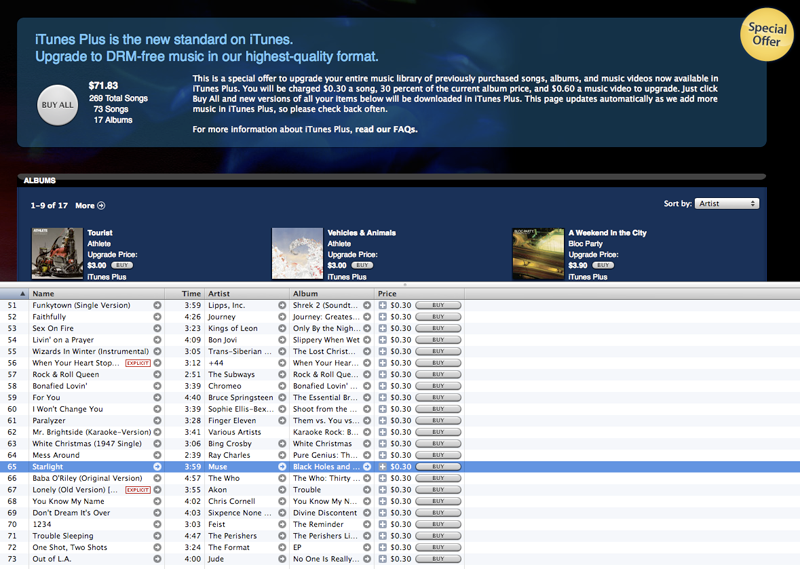Though Apple and record labels abandoned digital rights management protection in iTunes Store music purchases years ago, an antitrust lawsuit on the matter first filed in 2005 is set to go to trial this week.

The class-action lawsuit filed nearly a decade ago by Thomas Slattery originally alleged that Apple violated federal antitrust laws and California's unfair competition law by requiring that customers use an iPod to listen to music purchased from the iTunes Music Store. Apple managed to have some claims struck from the complaint in 2005, but was not successful in having the lawsuit dismissed.
The suit originally centered around RealNetworks, which caused a controversy in July 2004 when it released a workaround allowing songs purchased from its store onto Apple's iPod. The lawsuit took issue with Apple's "refusal to license FairPlay technology to other companies," but those claims were dismissed in December of 2009.
What remains is an allegation that Apple attempted to maintain a monopoly on the portable media player and downloadable music markets by issuing updates to FairPlay, its DRM that locked iTunes purchases to Apple devices.
Of course, since the lawsuit was filed, Apple negotiated a deal with record labels to drop DRM from music purchases in 2009. But the lawsuit carried on, and Jobs himself, months away from death, was compelled to testify in the case in 2011.

Jobs's 2011 deposition, as well as emails obtained through the lawsuit, are expected to play a major part in the antitrust suit, as noted by The New York Times. Potential damages of around $350 million could be imposed on Apple if it were to lose the trial, which begins in Oakland, Calif., this week.
A few emails sent by Jobs have already been made public, with more expected to be unveiled as the trial gets underway. One of the already-released emails shows Jobs concerned that Music Match was launching its own digital storefront, and he wanted to be sure their content could not be transferred to an iPod.
Other testimony in the trial is expected to come from Apple marketing chief Phil Schiller, and iTunes head Eddy Cue.
U.S. District Court Judge Yvonne Gonzales Rogers moved the lawsuit toward trial phase in October, setting the stage for Tuesday's start date. Plaintiffs seek $350 million in damages for customers who purchased iPod classic, iPod shuffle, iPod touch and iPod nano models between Sept. 12, 2006 and March 31, 2009.